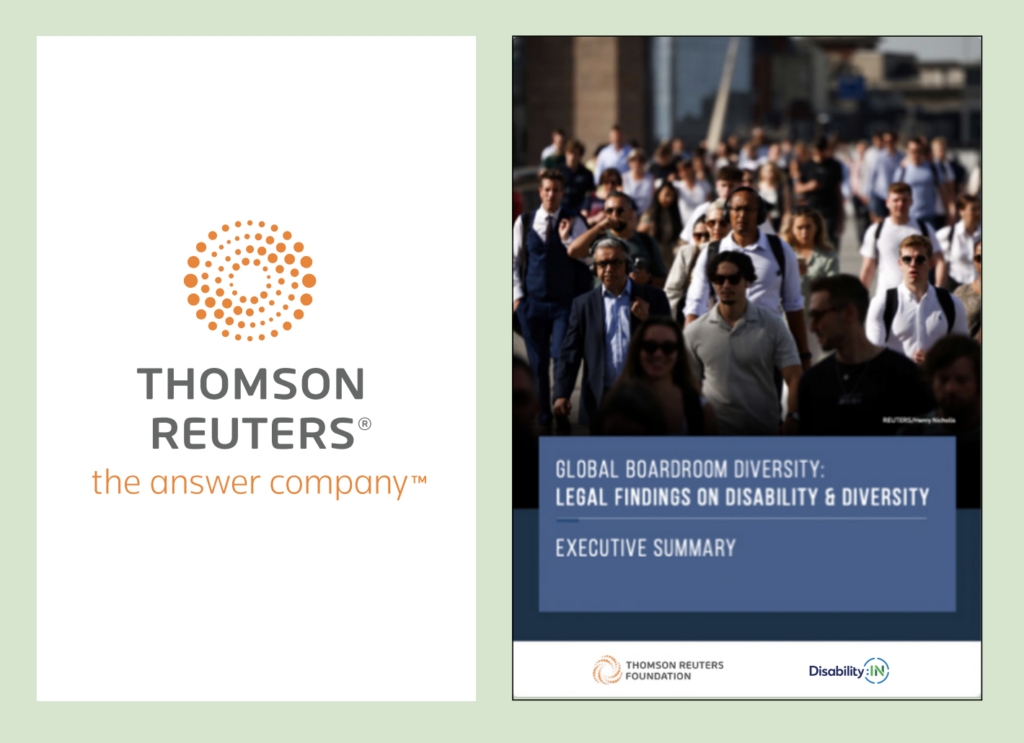Against this backdrop, disability inclusion maintains the power to transform company culture as demonstrated by a steady increase in the creation of disability-focused Employee/Business Resource Groups (E/BRGs). Today, 89% of Disability Equality Index (DEI) companies have a disability E/BRG with nearly half founded in the past five years. The grassroots, bottom-up impact that can be expected from a high saturation of E/BRGs can be truly catalyzed when coupled with a strong, top-down commitment from senior leadership. Internal allyship for the disability community by at least one senior executive is present at 92% of DEI companies. Moreover, a framework for fostering a disability-inclusive culture is established from Day 1 at most companies as 91% of DEI participants include disability inclusion information in new hire orientation.
It’s becoming increasingly important for companies to understand the full composition of their workforce. This is demonstrated by 93% of DEI companies encouraging their employees with disabilities to confidentially self-identify. An estimated median 4.6% of U.S. employees at companies that submitted data via the DEI self-identify as a person with a disability, up from 4% on the 2022 DEI. While this positive trend is encouraging – especially for federal contractors with Office of Federal Contract Compliance Programs (OFCCP) aspirational goals of 7% disability representation across all job groups – a new report from Boston Consulting Group (BCG) found that “employees with disabilities significantly under disclose to their employers”. The BCG report projected the workforce prevalence of disability to be 25% which is more aligned with the World Health Organization’s estimate that 16% of the global population lives with a significant disability. Self identification is becoming a powerful mechanism for companies to capture increasingly complex and critical employee information. Traditional binaries are giving way to more nuanced and fluid identities that are both apparent and non-apparent, and that can only be fully identified by the individual themselves. The potential for people with disabilities is significant as increased self identification rates can strengthen the collective voice of a community that is often underrepresented in the workplace.
Disability:IN recently released research on the role of voluntary self identification in the workplace. The report offers a blueprint for increasing disability self identification rates over time while building company trust through measurement, education, and strategic disclosures.
The focus on internal self identification campaigns is also beginning to slowly make Its way into external disclosures and benchmarking strategies.
This type of public disclosure of disability data allows companies to begin benchmarking internal progress and make the case for implementing programs — from E/BRGs to hiring initiatives to accessibility commitments — that both increase the representation of people with disabilities and help to ensure their full participation. For instance, corporate accessibility programs continue to gain momentum as 64% of DEI companies now report having a requirement to make their digital products accessible and usable for people with disabilities (up from 62% in 2022) and 60% have a plan in place to ensure that social media postings are accessible (55% in 2022).
These positive indicators obscure the fact that disability representation remains nearly non-existent inside corporate board rooms. Only 7% of DEI companies report having a director on their corporate board who openly identifies as disabled. Similarly, just 7% of DEI companies mention disability in the documents that govern the nomination of new board directors, though another 7% say they plan to integrate disability into their nomination charters in the next year. In June 2023, Disability:IN and the Thomson Reuters Foundation published a legal brief on the absence of board-level disability disclosures and called on private sector mechanisms to begin tracking disability inclusion in corporate governance to promote regulatory disclosures for board-level diversity that includes disability.
Today 69% of DEI companies issue annual diversity reports, and 24% of companies now include disability data in their reporting.
Only the Toronto Stock Exchange and the London Stock Exchange include individuals with disabilities in their board-level disclosures. Click to read Disability:IN’s legal report, co- authored with the Thomson Reuters Foundation, on global diversity disclosures.

